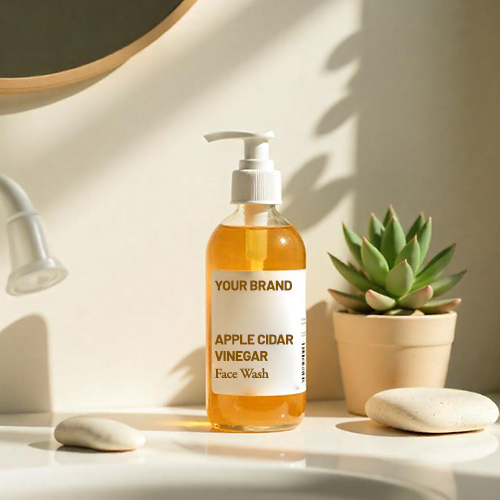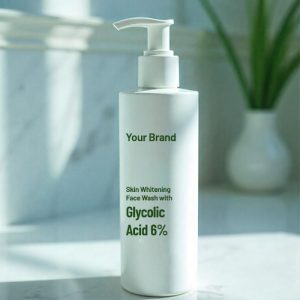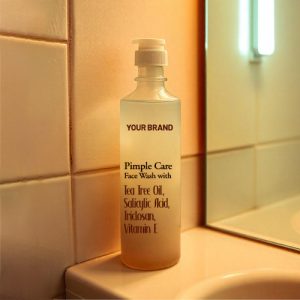Apple cider vinegar face wash – Dirt, pollution, and free radicals can make your skin rough and irritable. So, now it’s time to control all these factors that impact your skin by using Apple cider vinegar face wash. Vive Cosmetics created this face wash by using the goodness of Apple cider vinegar, Aloe Vera Gel, and Water. It helps in cleansing your skin’s impurities and maintaining your skin’s pH level. This Apple cider vinegar face wash is trending online on social media platforms, influencers claim it is a magical solution for enhancing beauty. Our Apple cider vinegar face wash is dermatologically tested, has no harmful chemicals free from toxins like parabens and mineral oil.
What is Apple cider vinegar?
Apple juice that has undergone multiple fermentations. In the first step, crushed apples are combined with yeast or another carbohydrate. The juice is fermented over time by natural bacteria, which turns the alcohol into acetic acid. After this procedure is complete, you have either raw, unfiltered Apple Cider Vinegar or pasteurised and filtered. The raw form contains hazy sediment composed of yeast and bacteria that have settled.
Benefits of Using Apple Cider Vinegar for Skin
It is an acidic and strong vinegar, so it’s necessary to dilute the product. Be careful not to damage your skin, irritate your scalp, or strip your hair. To begin, add half a tablespoon to each eight ounces of water. You can gradually increase the strength over time, depending on how your skin and hair respond. Avoid going overboard as this can lead to burns, brassiness in the hair, and other skin issues.
Features of Apple Cider Vinegar for Your Skin
It is generally recommended for those having oily skin and acne-prone skin. You can use it as a toner, spot treatment or facial cleanser. Here we list some benefits for the skin:
- Exfoliation
- Balance skin pH level
- Stimulating circulation
- Reducing hyperpigmentation
- Deeply Cleanses Skin
- Promote Clear Skin
Tips for Using Apple Cider Vinegar
- If you have a skin condition, avoid using it. If it irritates you, stop using it.
- Verify that the website you’re using as a how-to guide is reliable.
- In the winter, ACV might not work as well. To combat the dryness of winter weather, you might require it less frequently.
- Continue to moisturise your skin to maintain its protection.
- ACV may increase your skin’s sensitivity to sunlight. Throughout the winter, make sure to keep applying sunscreen.
- ACV should never be used directly. Before using it on larger areas, always dilute it and test it on a skin patch.
But if you feel any irritation and need help with your skin then consult with a dermatologist.










 Home
Home Range
Range Call Us
Call Us Whatsapp
Whatsapp Contact Us
Contact Us